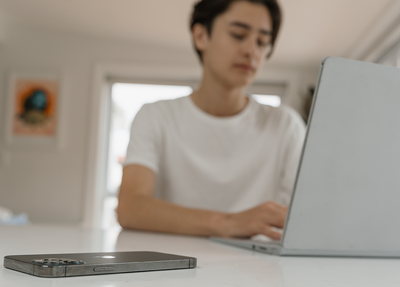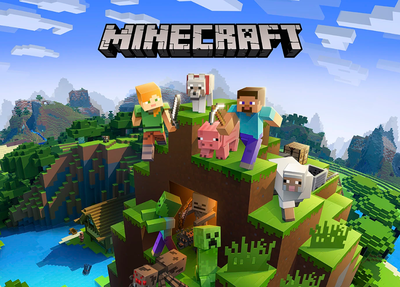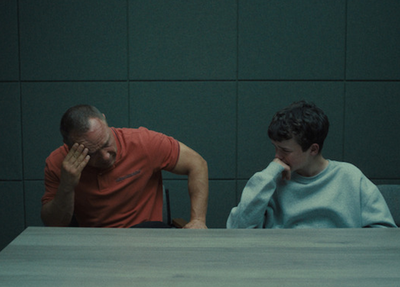Clickbait and Rangatahi: A Teacher's Perspective on the Popular Netflix Series
Caitlin on Sept. 27, 2021
In this blog we speak with a high school teacher about the popular Netflix series Clickbait and ask for her expertise as an educator on what she thought about the series.
Spoiler alert: The below interview includes plot spoilers so please be aware if this was something you were going to watch.
Clickbait is about the dangers of the online world. It shows how quickly reputations and careers are destroyed by rumour, in this case, made worse by an intentionally manufactured fake profile by a person pretending to be someone else (catfishing.) The cruel nature of the series shows a sensationalised reality of what young people have to navigate online today. The series has been rated 16+ by Netflix.
Tell us about yourself (first name, what you teach and maybe something about your interest in films/series)
My name is Jess and I’ve been teaching English and Drama at a high school for the last seven years. I studied English, Media Studies and Performing Arts at university. I’ve always found it fascinating how social issues are addressed and represented through texts, whether that be films, novels or plays. I think building worlds that are fictional but relatable is a safe and accessible way to bring attention and understanding to them.
Firstly, let’s start with what caught your interest about the show. What hooked you in?
Just your usual lockdown boredom, looking for something to entertain me and pass the time! Let’s be honest, Netflix's 'number 1' in NZ rating got me. I’m not usually a big fan of crime or suspense, but right from the first episode I found myself watching every character action and trying to guess who might be guilty which hooked me in.
What made you uncomfortable when you were viewing? Was there anything you weren’t sure about?
What made me uncomfortable was the topic of abusing women. As a female and a mother of two girls, this is obviously something I am fearful of myself and for my children. I was very wary of the character, Matt, from the start, especially when there were suspicions around his involvement with a young female student.
You work with rangatahi, predominantly boys. When you watch content does your job impact how you process storylines?
Yes, I think it does. There comes a point in life when you realise you no longer identify with the teenagers in storylines and instead with the adults. However, working with teenagers means I can now understand characters that I may otherwise not relate to. Working with students of the opposite gender also gives me a broader lens when watching content than I would perhaps have on my own as a female. Some things I may have been judgemental at I am able to look at with greater understanding and compassion.
Was that the case for Clickbait?
Yes, mainly when it came to the teenage sons of the couple. I really felt for the younger son acting violently out of emotion in defence of both his mother and brother. In my experience as a teacher, if a teenager acts violently, it is very likely they have been triggered by something that has gotten under their skin. I found I had a lot more concern for the older son because he was not expressing his emotions and concerns to the adults around him. The fact that he was communicating with someone online about very private and personal information was a huge red flag for me.
Are you aware of your pupils having viewed the show? Are they having discussions about it in the classroom?
Surprisingly very few of them have seen the show. Those that have seen it all thought the ending was “really gross”. This lead to the discussion of whether any of them have made friends with strangers online. Quite a few said yes – some through gaming, but a lot through TikTok and Snapchat. When I asked how they were certain they knew the person's identity they seemed extremely confident that you can’t catfish on Snapchat because the person has to send a photo in “real time”. Most said they wouldn’t meet up with someone in real life unless it was a “chick who was real hot” which is a whole new topic completely. We won’t go there!
What would you say to rangatahi who watch Clickbait or content similar to this?
I would say that it is important to be careful with what you view and what you share online. I would use the brother as an example. He shared the video of Nick out of love and heartbreak for his sister. Despite later changing his mind, he couldn’t take the video down. Actions have consequences and because of his, he will likely be in prison for a long time. And secondly, this show brings to attention the amount of graphic content that is available online. It is so easy to click on something without thinking through what you might be about to see. I would encourage them to talk to someone if they feel uncomfortable or confused about anything they’ve seen.
What conversations should whānau be having?
I think this is such a tough, but really important one. It seems to be the case that parents aren’t asking their teenagers about their social media use. Teenage boys tend to not only be private about their social media use, but also clever. There is a trend to have a public Instagram and then a private one. From conversations I have had with students I’ve learnt that the public account is for anyone to see and follow, such as family members. The private account is for close friends they trust not to screen shot and share the potentially inappropriate things they post. I think parents need to be more aware of the apps their teenagers are using and talking with them about what they use each one for and why.
You teach English and do Film Studies with rangatahi. Can you talk about any cool insights you hear from young people?
It truly astounds me how I can view a film numerous times, sometimes over many years, and still every year a student will notice something or make a connection I haven’t thought of before. For example, this year I have had a range of insightful discussions around the film The Purge and the comments it makes on society. It highlights how truly important it is to view things from a range of perspectives and that teenagers have so much value to add. Their experiences, no matter how limited, are valid and we, as adults, need to be open to learning from them.
How do you teach critical thinking?
Critical thinking is a huge part of English. It is something that is constantly encouraged when we are studying a text. When writing an essay, students are asked to “link” the text to the real world so they can see the author or director’s purpose. I have also spent time teaching a unit with my juniors this year which focuses on teaching them the skills to identify real news and to differentiate between something that is biased or balanced.
Anything else you would like to add?
I think teenagers can sometimes be seen as too hard to relate to. In actual fact I think we can understand them, the hard part is reaching them and connecting with them. Your world tends to be very small when you’re a teenager and your problems feel huge. As adults we tend to downplay some things that they face. “It’s just a phase”, “you just don’t have enough experience”, “gosh you think that’s a big deal, wait until…” I think the first step is making sure they feel seen and heard. And lastly, I think the reality is that teenagers see so much online that perhaps they “shouldn’t”. Ratings and trigger/content warnings are so essential to help them navigate what they view, but for the most part a lot will see things regardless. That’s why I believe that building relationships with teenagers is so essential so that they have adults they can speak with to make sense of content that may disturb them.
Help information
Check out our blog Is Amy Poehler’s high school comedy-drama appropriate for young people? where we highlight how to talk with young people about what they watch.
Look out for other sites that have useful info for parents like the Internet Movie Database and Common Sense Media.
For more information on how to talk with your whānau about what they are watching, check out our resources on how to have these conversations. If the content of this blog has made you feel uncomfortable or concerned please reach out. Free call or text 1737 for more support.
Subscribe to our blog
Stay up to date with the Classification Office blog.


